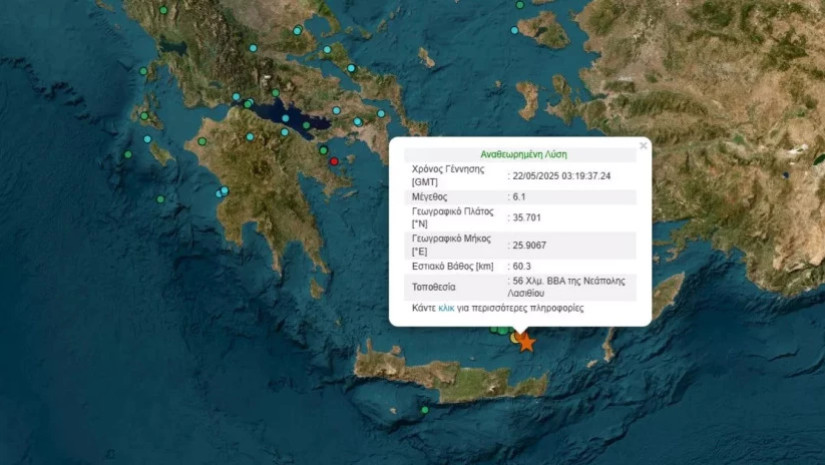The earthquake's epicentre was 56 kilometres northeast of Heraklion, off the Greek coast.
A strong earthquake, measuring 6.1 on the Richter scale, occurred at 6:19 am local time (5:19 CEST) some 56 kilometers northeast of Heraklion on Crete, according to data from the Geodynamic Institute of the National Observatory of Athens.
The focal depth is estimated to have been 60.3 kilometres.
Based on initial information, the earthquake disrupted the residents of Crete and was particularly felt on the Aegean islands and in areas of mainland Greece.
The intensity and duration of the earthquake were high in Chania and Rethymno.
Residents of Athens also reported that they felt the powerful earthquake.
Crete's fire services have been put on general alert. Fire brigade vehicles are already on patrol to control the situation.
According to reports, the earthquake caused landslides on the provincial road network and damage to buildings in Heraklion.
Speaking to ERT, the president of the Earthquake Planning and Protection Organisation, Efthimios Lekkas, noted that it was positive that the earthquake's epicentre was located in the sea, and that there was no likely fear of a tsunami.
Lekkas said the earthquake occurred at a significant depth at the confluence of the African and European plates. This area has produced strong earthquakes in the past.
Speaking to domestic Mega TV station, the mayor of Agios Nikolaos, Manolis Menegakis, said that the earthquake was powerful but confirmed that there were no significant reports of damage. "We are vigilant," he said.


















